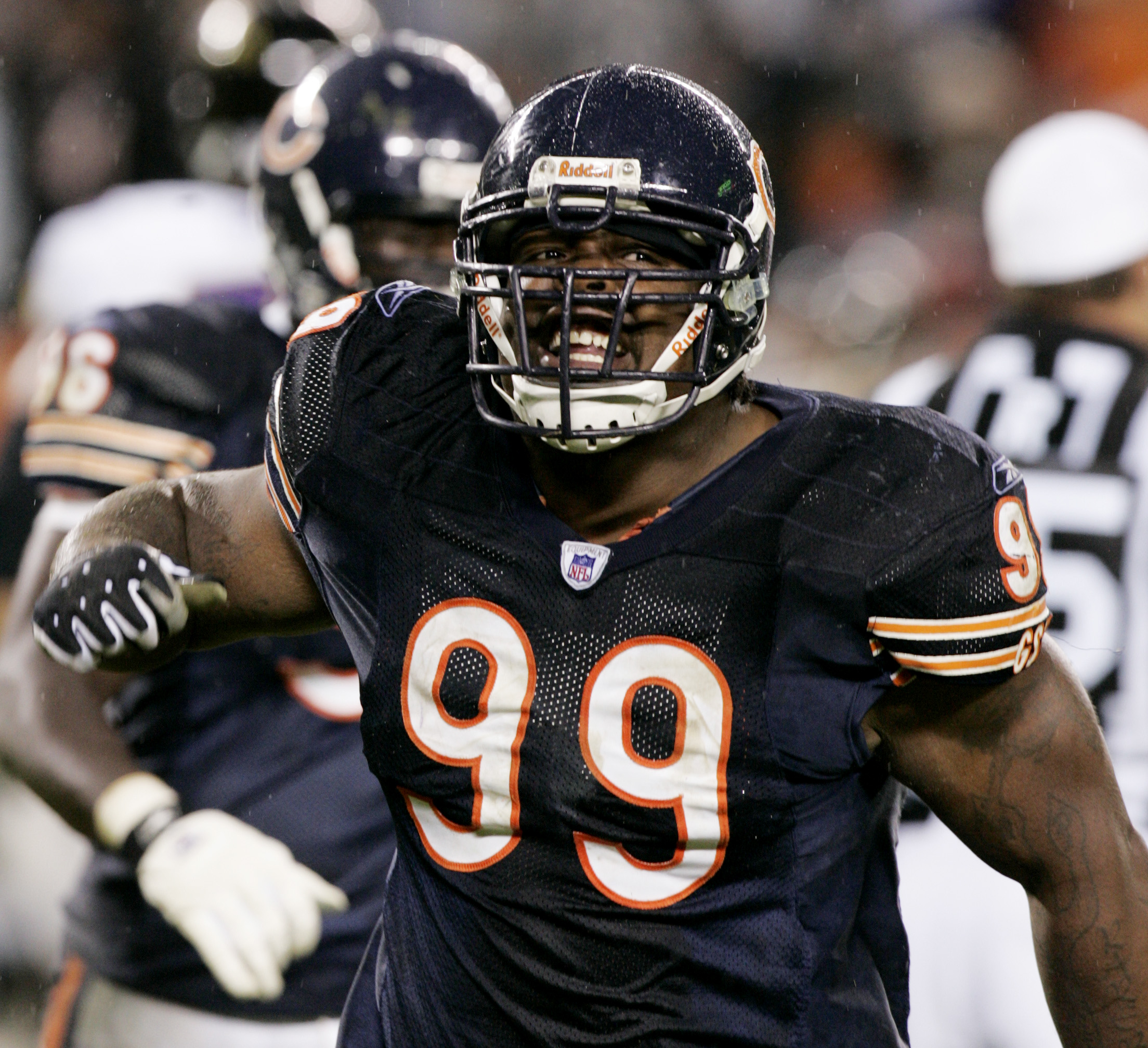Some people still call him “Tank,” but in his fifth-floor cubicle at NFL headquarters, he prefers to go by Terry Johnson.
The former defensive tackle and onetime poster child for bad off-field behavior likes having a little anonymity as a 34-year-old intern in the league’s player engagement department – albeit with big ambitions for his ongoing modern athlete research project.
“With charitable endeavors, social media and your play on the field, those three things are married together to create opportunities like no time in history,” Johnson told USA TODAY Sports on Thursday. “I think that’s unique for the modern athlete, and we, as the NFL, who is staunchly protective of our brand, can teach our athletes something about building their brand and building it in an organic way.”
Even before his playing days ended, Johnson was working on rebuilding his own brand with support from NFL Commissioner Roger Goodell, who grew close with Johnson after suspending him in 2007 – along with Pacman Jones and Chris Henry as part of a crackdown on personal conduct – for eight games amid a string of arrests for weapons and other offenses.
Johnson credits the social rehabilitation program he created for himself, “Moving the Chains,” with getting him his last playing opportunity with the Cincinnati Bengals in 2009 and estimates he has presented the program to about half the league’s teams. He went back to school in 2014 and is set to graduate next month with a sociology degree from the University of Washington, his last eight credits tied to the internship through the NFL Legends Program.
“‘Tank’ is such a complicated person, because whatever you’ve read, whoever you’ve talked to, that may make up Tank Johnson in your mind,” said Johnson, who also played for the Chicago Bears and Dallas Cowboys over a seven-year career. “But I think Terry Johnson is a person I can build from an even ground, if you will, because I feel like it comes with a clean slate.”
A married father of two, Johnson has told his story in past years at the NFL’s rookie symposium, which was replaced this year by programs hosted at the team level as the league reorganizes and explores new ways to reach players under the watch of executive vice president of football operations Troy Vincent.
“Communication has fundamentally changed, and so the way you communicate has to change,” said Keith Elias, the former NFL running back who’s now the league’s director of former players transition and programs. “I love how football players are wired, in that the minute Terry got here, he became an asset to the team as a whole – willing to do all of the tough work, but also brave enough to put his voice in the room, because his thoughts and ideas are gold.”
Johnson said he first pitched the research project to Goodell. Among other things, he plans to gather data and interview 20 players at various stages of their careers - “just get in front of these guys and humanize them and really engage them.”
He hopes his work with the league will continue after the internship ends in August. He’d eventually like to launch a “branding boot camp.” He wants players to realize sooner than he did they have opportunities that others don’t because of their status, and it doesn’t require much effort to take advantage: meet people, get business cards, send thank-you notes.
“I’ve been the person that they’ve said, ‘You’re Tank Johnson. You’re just a thug. You’re just a criminal.’ And I’m so much more than that,” Johnson said. “There’s black and white, and then there’s a lot of gray area of who we are. I’ve always realized that. I know the modern athlete is not just an athlete today with increased visibility. I know there are so many more variables.
“I just don’t want these guys to go through their career and not maximize this tremendous platform. I’m kicking and screaming over here in my cubicle to get this stuff done. But this is corporate America. There’s a way. There’s a business model. The owners are our bosses, and there’s checks and balances. I hope to produce something that makes it through that grinder and comes out the other end.”
Follow Tom Pelissero on Twitter @TomPelissero.



